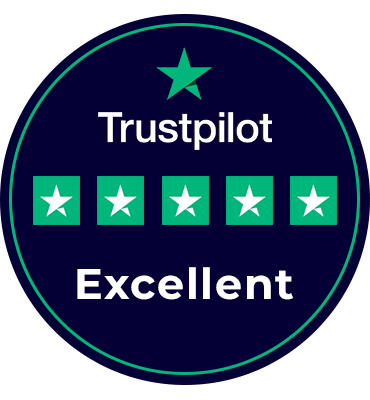How to Design a Real Estate Website A Complete Guide
Shyam Singh
Last Updated on: 30 April 2025
Why a Real Estate Website Matters
A well-designed real estate website is essential for property agents, brokers, and agencies aiming to attract buyers and sellers in today’s digital-first market. With more users searching for homes online, your website becomes the first impression and main conversion tool.
Benefits of a Professional Real Estate Website
- Showcase listings with rich content and visuals.
- Build trust and credibility with potential clients.
- Generate qualified leads through smart forms and search features.
- Improve search rankings with SEO-optimized pages.
Key Features of a High-Quality Real Estate Website
1. Mobile-Friendly & Responsive Design
Your website must work on all screen sizes—desktop, tablet, and mobile. Google also gives preference to mobile-optimised websites when ranking in search results.
2. High-Quality Images & Virtual Tours
Visuals sell. Use professional photography and 360-degree virtual tours to enhance engagement and help buyers explore properties remotely.
3. Advanced Property Search & Filters
Let users filter properties by location, price, size, amenities, and more. Add a smart search bar with auto-suggest functionality.
4. SEO-Optimised Content & Blog Section
Use keyword-rich property descriptions and maintain a blog on relevant topics like:
- Best Areas to Buy a House in the UK
- Tips for First-Time Home Buyers
- Real Estate Investment Trends in 2025
5. Interactive Map Integration
Integrate Google Maps to show property locations. Add local landmarks such as schools, hospitals, and public transport links.
6. Fast Loading Speed & Security
Compress images, minify code, and use a CDN to improve page speed. Install SSL certificates to ensure safe browsing and protect user data.
7. Lead Generation Forms & Chatbots
Add easy-to-use contact forms and AI-powered chatbots to help convert visitors into clients in real-time.
Step-by-Step Guide to Designing a Real Estate Website
Step 1: Choose the Right Domain Name & Hosting
Pick a short, memorable domain like LondonHomes.co.uk. Use reliable hosting with strong uptime and performance.
Step 2: Select a CMS or Website Builder
- WordPress – Best for custom features (use plugins like WPL Real Estate).
- Wix – Great for beginners with drag-and-drop functionality.
- Squarespace – Excellent for sleek, ready-to-use templates.
Step 3: Design an Engaging Homepage
Highlight your best listings and include a call-to-action like “Find Your Dream Home Today.”
Step 4: Create Essential Pages
- Home – Overview of services and listings.
- Property Listings – With filters and high-res images.
- About Us – Company background and team.
- Contact – Forms, phone numbers, maps.
- Blog – Regular SEO content and market updates.
Step 5: Implement SEO Best Practices
Include keywords like "real estate website design UK" in your titles, meta descriptions, and headings. Use alt tags for all images and submit your site to Google Search Console.
Step 6: Add Social Media & Reviews
Link Facebook, Instagram, and LinkedIn. Display real client testimonials and embed Google reviews.
Step 7: Test & Launch
Use tools like Google PageSpeed Insights and GTmetrix to test performance. Fix broken links and errors before going live.
Common Questions About Real Estate Website Design
How much does it cost to build a real estate website?
Anywhere between £500 to £10,000 depending on design, features, and platform choice.
What platform is best for a real estate website?
WordPress for customisation, Wix for simplicity, and Squarespace for sleek design.
How do I get more traffic to my real estate website?
Use SEO, blog content, paid ads, and social media campaigns.
Can I integrate MLS into my website?
Yes, using IDX plugins or services to sync MLS data automatically.
What makes a real estate website successful?
Clear navigation, fast performance, quality content, and effective lead-generation tools.
How Fulminous Software Can Help You Build the Perfect Real Estate Website
Tailored Solutions for Real Estate Professionals
At Fulminous Software, we build modern, SEO-friendly, and user-centric real estate websites designed to help you succeed in a competitive market.
✅ Visually Stunning & User-Friendly
We design elegant, intuitive websites that impress users and keep them engaged.
✅ SEO-Optimised
Our SEO practices help your website rank higher in search results, increasing visibility and traffic.
✅ Feature-Rich & Scalable
We implement advanced search filters, virtual tours, and CRM tools to power your property listings.
✅ Fast & Secure
We prioritise website speed and robust security to deliver the best user experience.
Ready to Build Your Real Estate Website?
Contact Fulminous Software today and let’s build a website that drives sales, leads, and brand growth in the real estate market.

 Verified
Expert in Software & Web App Engineering
Verified
Expert in Software & Web App Engineering
I am Shyam Singh, Founder of Fulminous Software Private Limited, headquartered in London, UK. We are a leading software design and development company with a global presence in the USA, Australia, the UK, and Europe. At Fulminous, we specialize in creating custom web applications, e-commerce platforms, and ERP systems tailored to diverse industries. My mission is to empower businesses by delivering innovative solutions and sharing insights that help them grow in the digital era.
Partner with Top-Notch Web Application Development Company!
Discuss your Custom Application Requirements on info@fulminoussoftware.com or call us on +1-903 488 7170.
15 Days Risk-Free Trial

